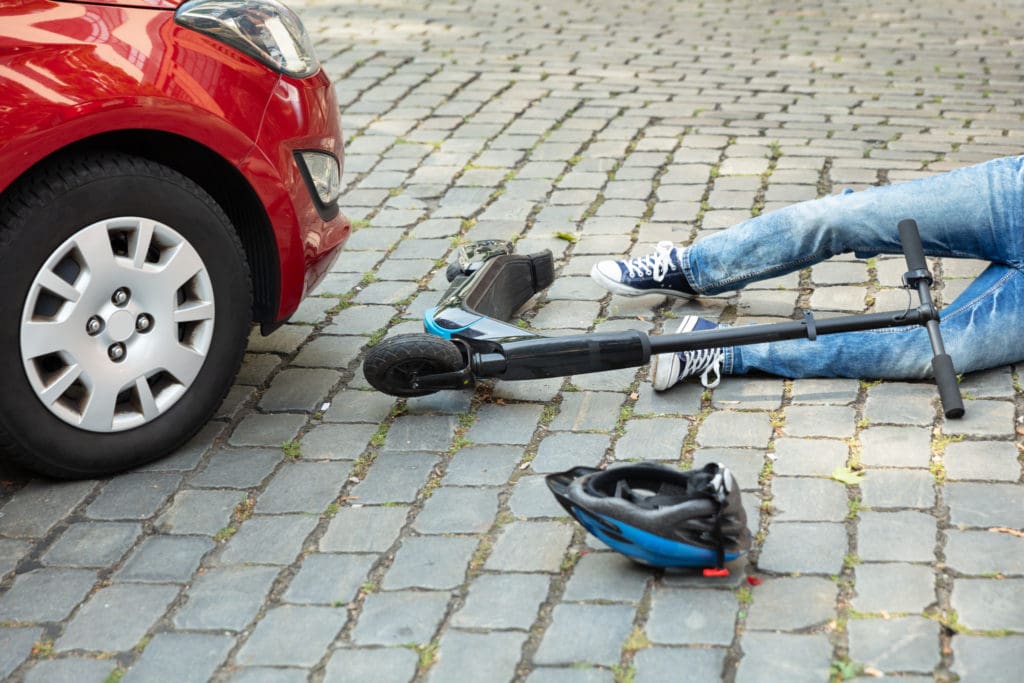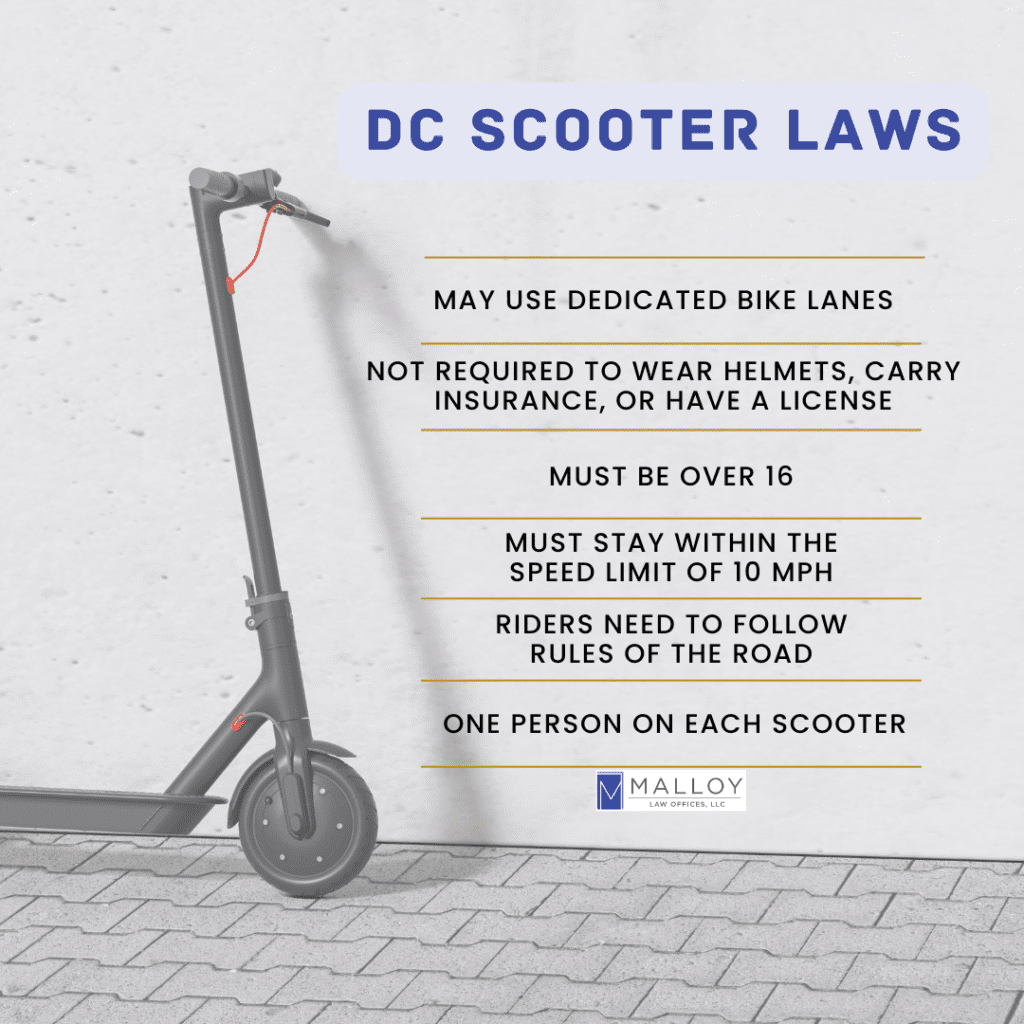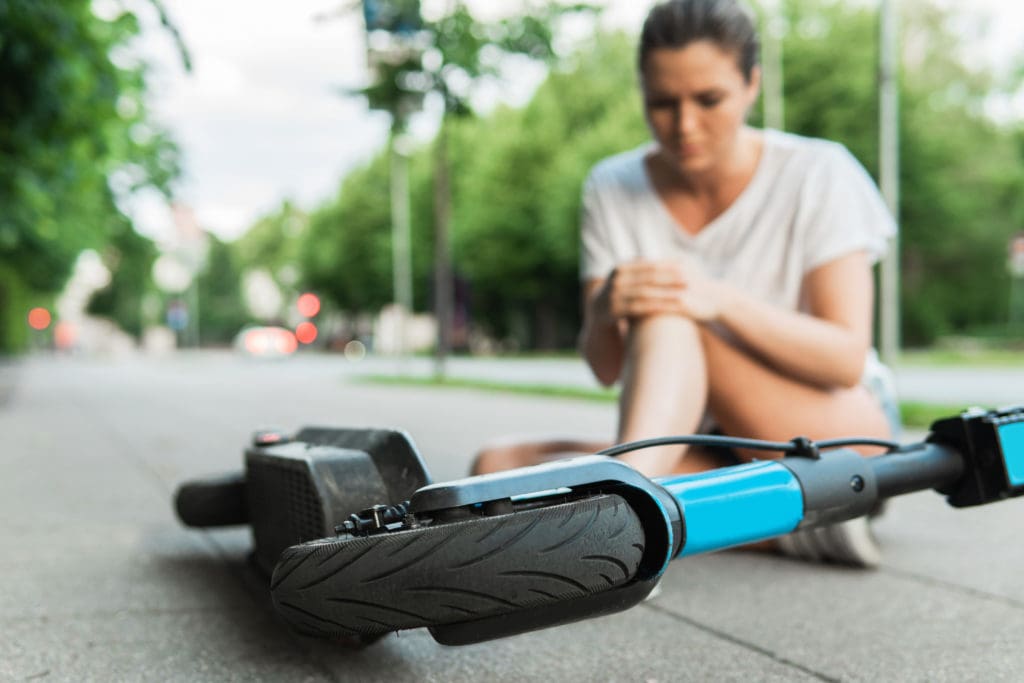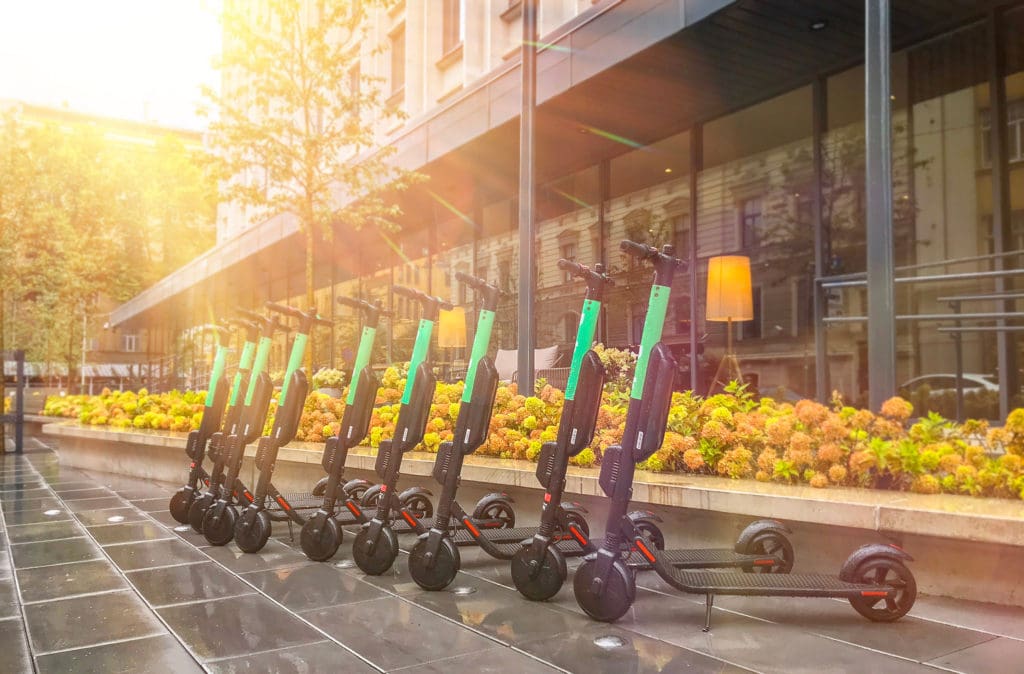Washington DC Electric Scooter Safety and Liability
Electric scooters have become a common sight in cities across America overnight. Companies such as Lime, Bird, and Spin have found a niche as a nimble and economical means of transportation. Spread-out metropolitan areas such as downtown Washington D.C. are an ideal fit for this sort of service, as a scooter makes landmarks such as the National Mall far easier to navigate. But the DC electric scooter sharing boom has come with no small amount of controversy. Lime has been criticized for its aggressive, almost irresponsible, expansion. Their practice of dropping off fleets of their distinctive green and white scooters without warning has won them few friends among municipal governments. This rapid expansion leads to a surplus of inexperienced scooter riders who may be misinformed or entirely ignorant of their city’s laws pertaining to electric scooter liability. Today’s blog will concern safety and liability around these electric scooters.
Washington DC Electric Scooter Laws
The District of Columbia has several laws on the books pertaining to the operation and regulation of electric scooters. A recent development concerns what riders should do when they reach their destination. A recent DC ordinance requires that scooters be locked to a bike rack, scooter corral, or signpost before disembarking. Scooters are also forbidden from riding on the sidewalks of the central business district. They are also generally encouraged to avoid sidewalks when heavily trafficked by pedestrians. But there are many other DC electric scooter laws, these include:
- Scooters may make use of all designated bike lanes
- Scooter riders are not required to wear helmets, carry insurance, or have a licens
- All scooter riders must be over the age of 16 to operate an electric scooter
- The speed limit for riding an electric scooter is 10 mph
- Scooter riders must obey all rules of the road and traffic signals
- Only one person allowed on a scooter at a time
Of course, any frequent pedestrian in downtown DC knows how often these laws are bent or ignored entirely. It’s not uncommon to see scooters tearing down busy sidewalks well in excess of 15 miles per hour. Their low cost to rent and high speed appeals to a younger demographic that often ride in pairs to save money. All this adds up to inevitable accidents, whether with pedestrians or other motorized vehicles. The consequences of these accidents can often be severe! Broken bones, traumatic brain injuries, and other serious injuries requiring emergency room trips are not uncommon.
DC Electric Scooter Liability
Due to liability waivers that riders are required to agree to before renting their scooters, the scooter sharing companies generally avoid responsibility for the accidents caused by their customers’ disregard for both company rules and municipal laws. However, like most waivers, these may not be as airtight as they appear. If it can be proven that a scooter-sharing company was negligent in some way that directly contributed to the accident, the chances of filing a successful personal injury case rise dramatically. For instance; if the accident was caused due to brake failure and it can be proven that the scooter’s brakes were not maintained properly.
If You Are Involved in an Accident
If you are involved in a scooter accident, whether as a rider, pedestrian, or operator of another vehicle, your own health should be your first concern. Contact emergency services if necessary, and seek medical attention. You should also collect information from anyone and everyone involved in the accident and take photos of the scene. If your accident was caused by mechanical failure on the part of the scooter, document the failure extensively and make note of the company name and scooter ID number.
How Malloy Law Can Help
An unfortunate trend of our modern era is technological progress outpacing the law’s ability to regulate it. Scooter sharing is a perfect example of this regrettable problem. On the one hand it’s a cheap and fun way to navigate urban environments without braving the dreaded downtown traffic and searching for scarce or expensive parking. On the other hand it’s often dangerously under-regulated and can cause serious personal injury. If you or a loved one has been involved in a scooter sharing accident, the personal injury specialists at Malloy Law Offices can advise you of your rights free of charge. Our attorneys prioritize our clients’ needs and stress empathy for the injured. We’ll fight to secure maximum compensation on your behalf. Don’t wait, contact Malloy Law today.




